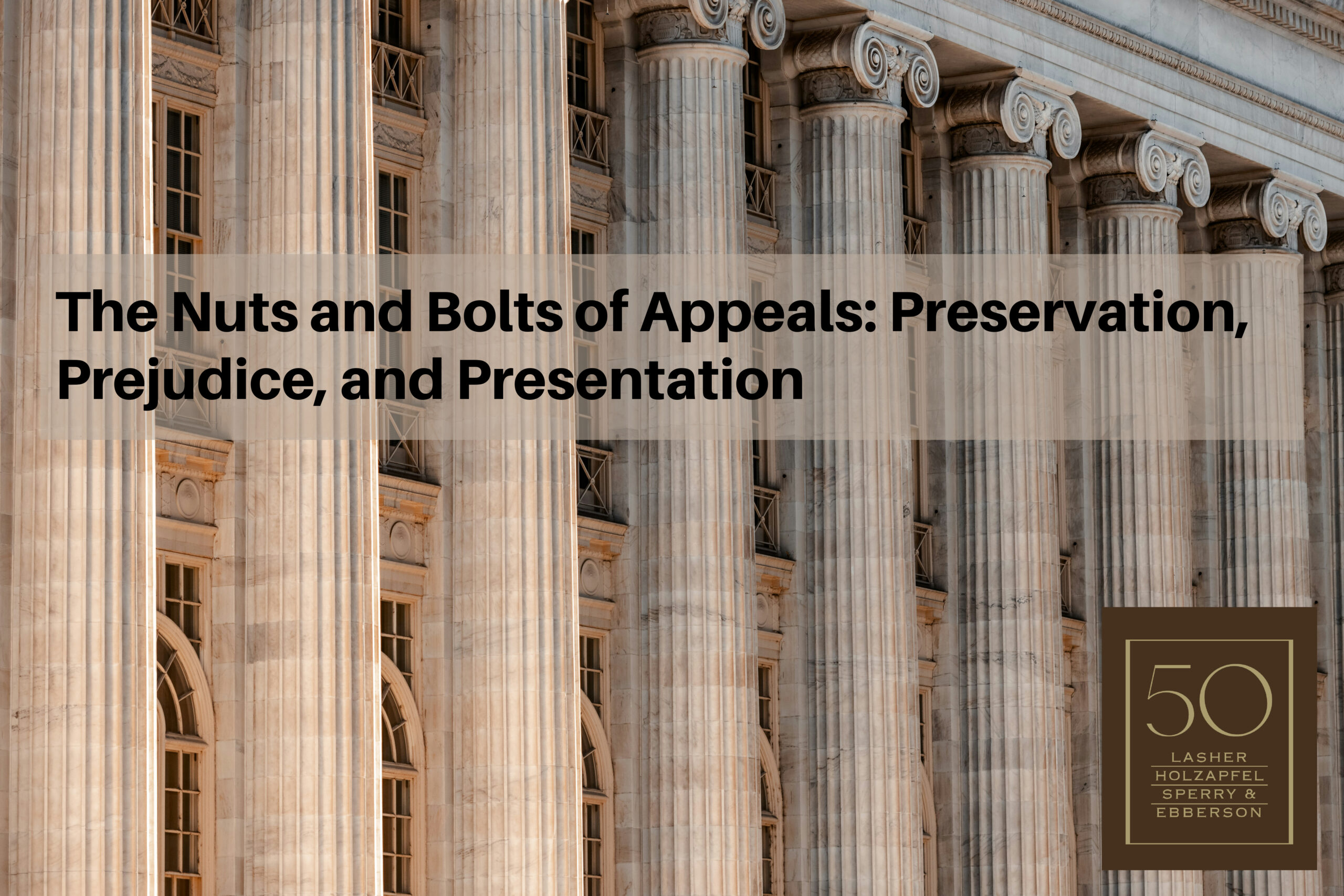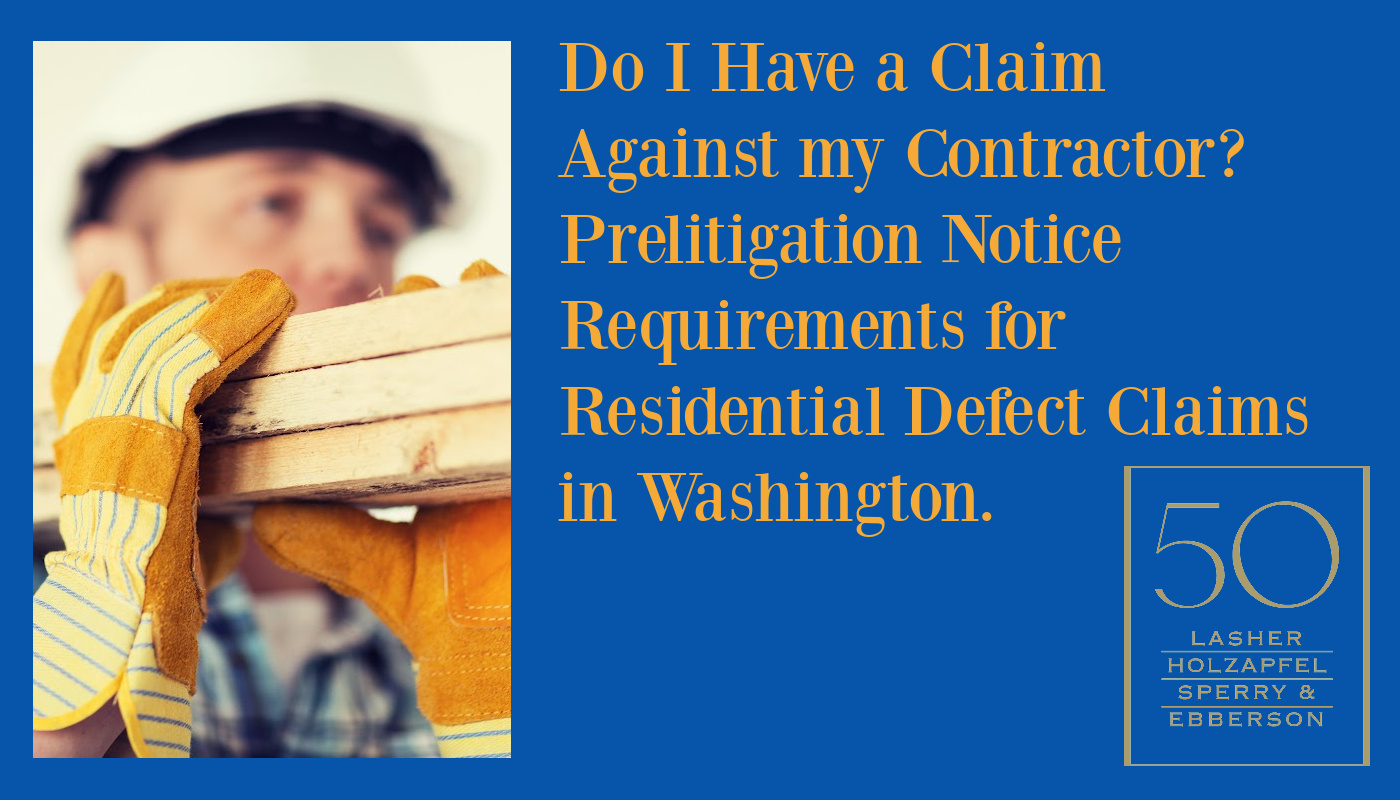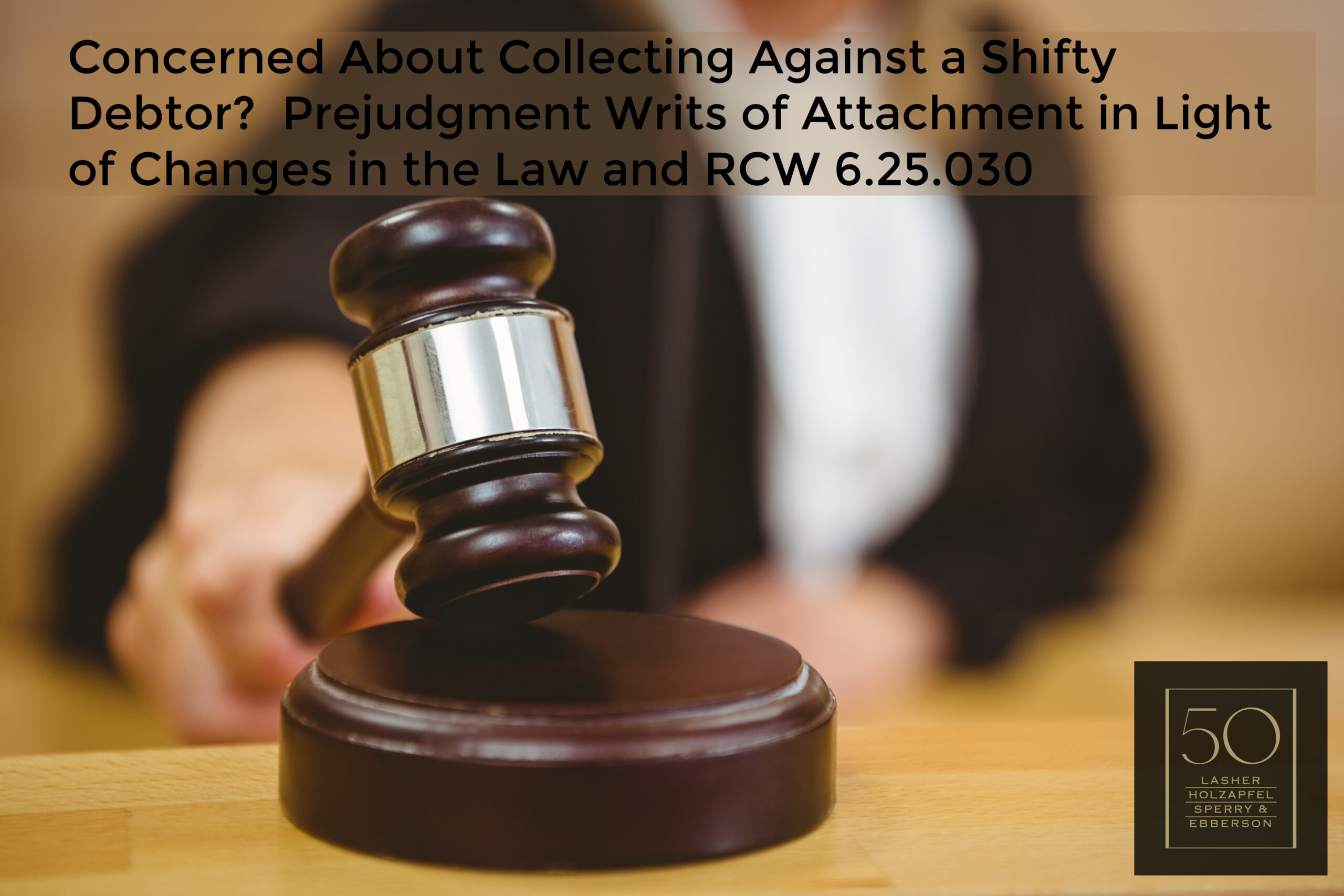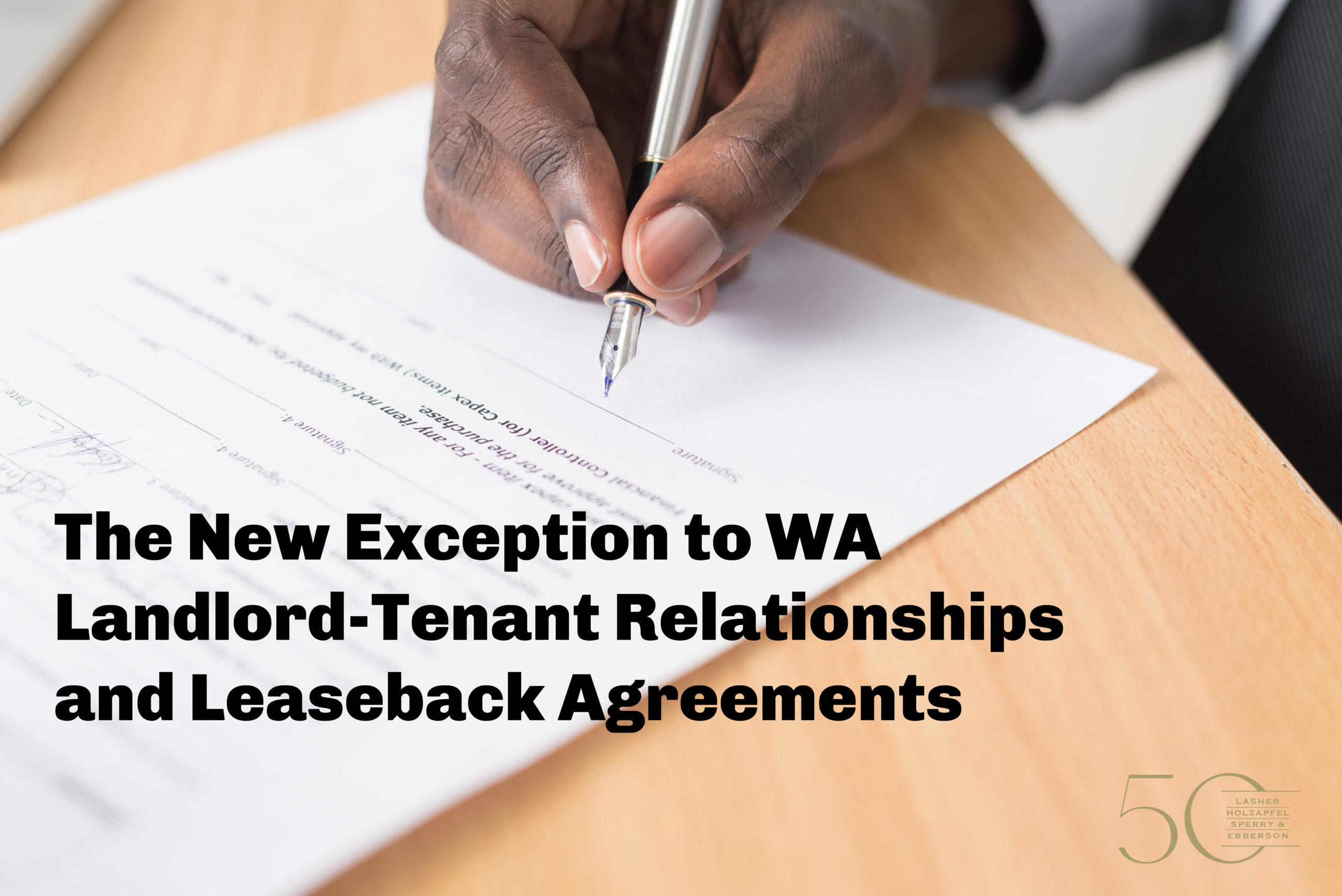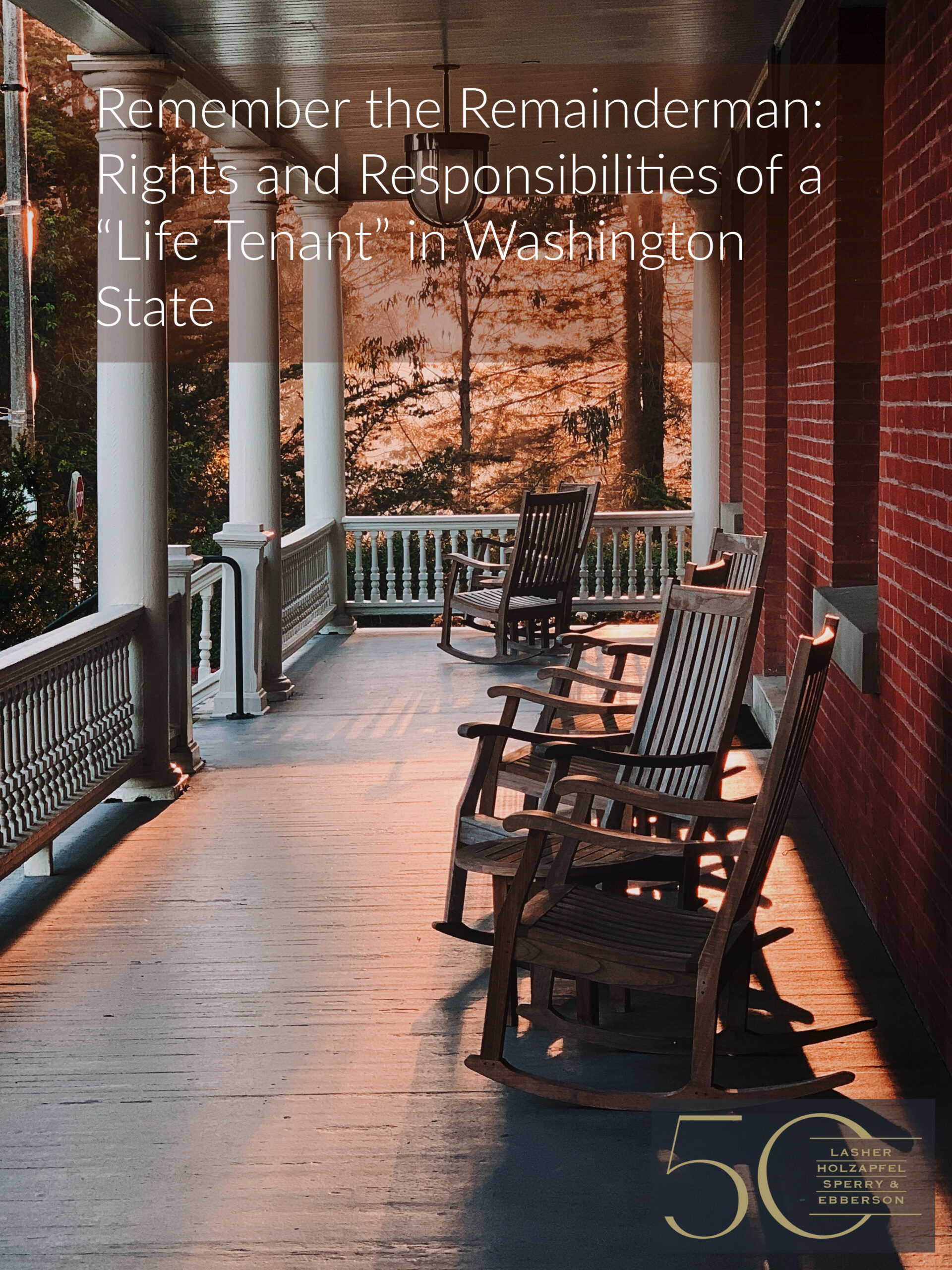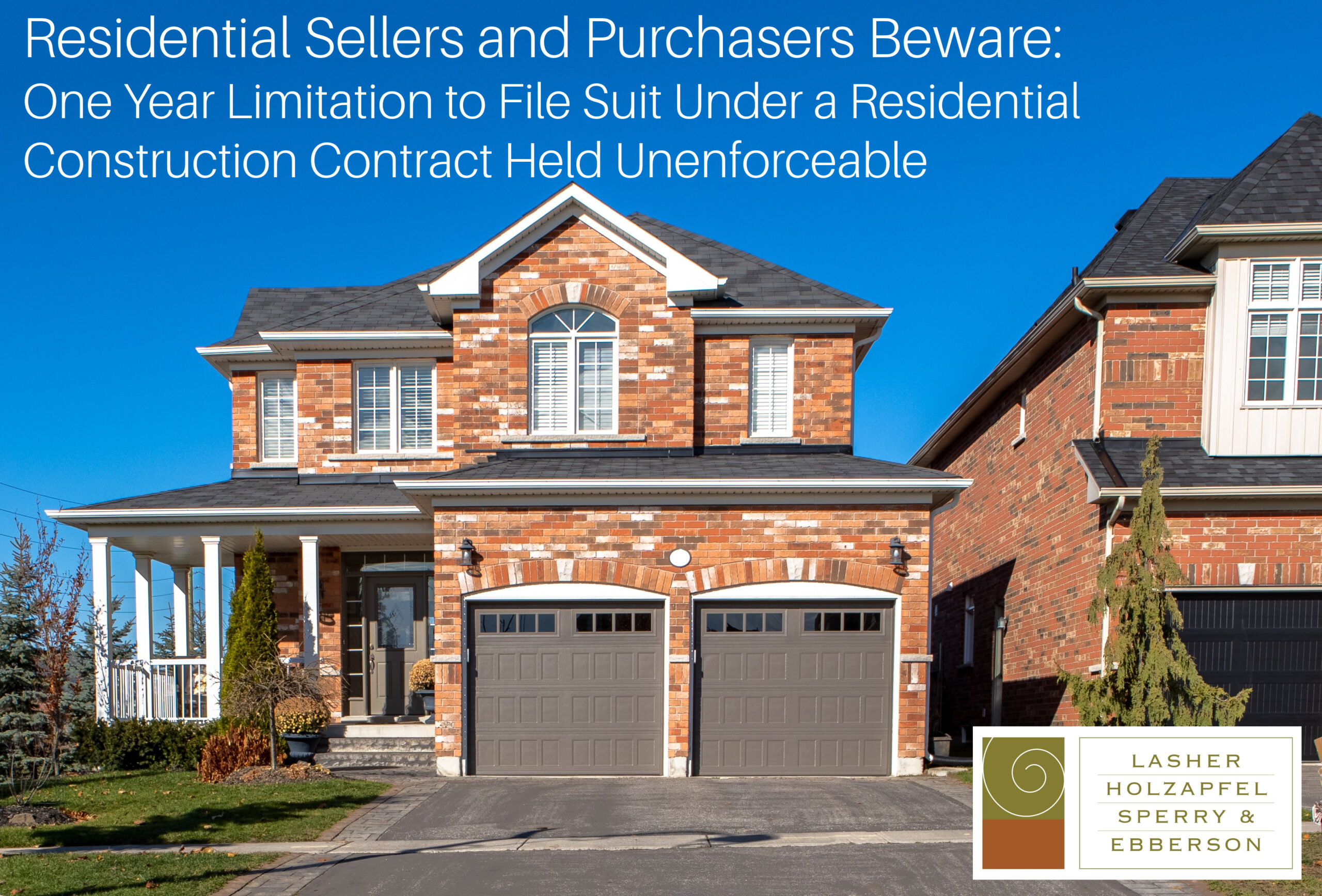News Category: Litigation
The Nuts and Bolts of Appeals: Preservation, Prejudice, and Presentation
Why Appeal at All? People appeal their case because they want a better outcome then what they received at trial. Maybe that means that the appealing party lost a jury verdict, or felt that they didn’t “win” enough at trial. Perhaps someone in a divorce trial receives 55% of the assets but no spousal support
Do I Have a Claim Against my Contractor? Prelitigation Notice Requirements for Residential Defect Claims in Washington
When faced with a residential construction defect problem—such as water intrusion, poor workmanship, or material/design deficiencies—Washington homeowners are often left wondering whether they have a claim, who is at fault for the construction issues, and what to do if they believe a claim exists. These are complicated questions that can get even more complicated if
Concerned About Collecting Against a Shifty Debtor? Prejudgment Writs of Attachment in Light of Changes in the Law and RCW 6.25.030
Collecting against an insolvent debtor (i.e., defendant) creates issues and places pressure on the creditor (i.e., plaintiff) to secure the debtor’s assets while final judgment in a lawsuit is pending. Oftentimes there is a concern that the debtor is secreting/moving assets or not maintaining assets prior to or during the pendency of the lawsuit, to
The New Exception to Washington Landlord-Tenant Relationships and Leaseback Agreements
A Leaseback Agreement or a “rentback agreement” is an agreement between a buyer and seller of a property that permits the seller to continue living in the property for a period while paying rent to the buyer. Leaseback agreements are usually short-term arrangements that provide sellers with additional time to move out of the property
Breaches of Fiduciary Duties in Closely Held Companies
In Washington State, closely held companies are those in which the ownership is concentrated among a small number of shareholders. These companies may also be family-owned or held by a group of individuals who have a relationship with one another beyond just being co-owners. While these companies may have a different dynamic than public corporations,
Remember the Remainderman: Rights and Responsibilities of a “Life Tenant” in Washington State
In the State of Washington, a life estate is a legal arrangement where a person, known as the “life tenant,” has the right to use and occupy a property for the duration of his or her life. The life tenant has all the same rights and responsibilities as a regular owner, but only for the
STRATEGIES TO WIN YOUR DIVORCE MEDIATION
In Washington State, couples going through divorce are required to attend a mediation in an attempt to settle the case before trial, unless excused for reasons such as domestic violence. As a divorce attorney, I have prepared hundreds of clients for mediation. I have also served as a mediator in many family law cases. Below
Your AI Can Testify Against You: The AI Revolution Comes to the Court of Law
On February 2, 2023, Microsoft released a brand-new suite of features for its popular Microsoft Teams platform under the moniker “Microsoft Teams Premium.”[1] One of the standout features of this premium service is “Intelligent Recap,” a software feature powered by the headline-news-generating ChatGPT AI system. Using ChatGPT, Intelligent Recap will “automatically generate[]meeting notes, recommended tasks,
Residential Sellers and Purchasers Beware: One Year Limitation to File Suit Under a Residential Construction Contract Held Unenforceable
This past fall, in a split 5-4 decision, the Washington Supreme Court ruled that a one-year limit to file suit under a residential construction contract was unconscionable and, as a result, void and unenforceable. Tadych v. Noble Ridge Construction, 519 P.3d 199 (2022). The Court articulated that a one-year limitation period “unduly benefits the contractor
Is Your Homeowners Association Limiting Short-Term Rentals Within Your Planned Community – and if Not, Should They?
With the rise of planned communities in Seattle, it is becoming more and more common for properties to be organized and operated as a Homeowner Association (“HOA”). An HOA is typically form as a separate entity with the intention of making and enforcing the rules for the properties and residents within the planned community. The

